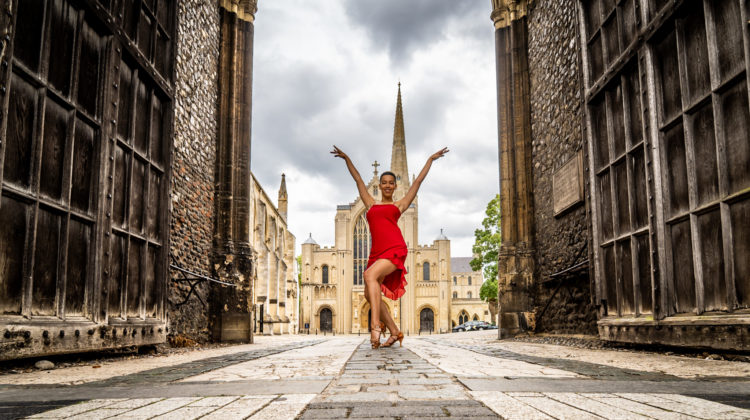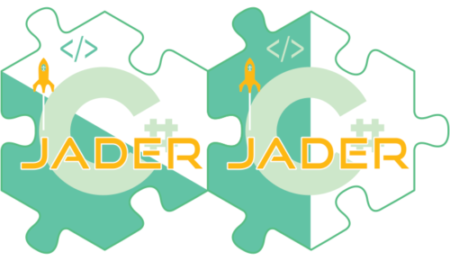
Black History Month continues. Step forward choreographer, dancer and model Rosy May, on why she felt compelled to start a podcast, celebrating her mixed heritage, this year.
If things had gone to plan, Rosy May would’ve been performing in her own show next month. The 22-year-old choreographer, dancer and model says: ‘I had a show that was meant to happen in November; that I had written, produced, directed and performed in. It was Arts Council funded and that was my big project for the whole year.’
Anna Mudeka (profiled on Folk Features this time last week) was going to be part of it. ‘I was really excited for that. She’s like an auntie…a mentor. We were on tour last year and everyone thought we were mother and daughter.’
Rosy was born in London but grew up in Norfolk. ‘I left when I was 16 and went to Performers College in Essex. I trained as a dancer and became a freelance dancer. In fact, she is become an experienced dancer, trained in dances of the African diaspora alongside many Western dance styles.
At the start of this year she had also started teaching at a new venue in Suffolk. ‘That was going really well,’ says Rosy, who lives in Ipswich. As was the modelling side of her work. ‘I do a lot of music videos and photo shoots in East Anglia and London. It was gaining momentum and things were going well. This was a year to really expand.’
But then, as she says: ‘It all completely stopped.’ So she quickly had to adapt. ‘That very first day, when we couldn’t do dance classes any more, I moved my classes online. I did a class for free and people made donations.’
And so this new way of operating went on. ‘I did dance classes every day for three months, then moved it to six days a week then five days a week, stopping in August. I was known in my circles as the lesser known Joe Wicks!’
It had been no mean feat: ‘For five months I was making a new routine every single day so my brain was a bit frazzled.’
Rosy wouldn’t be alone is saying that lockdown took its toll on her mental health. She was self-isolating in a household where people were shielding. As she points out: ‘We were in lockdown before the lockdown.’ The dancing provided a welcome distraction. ‘It did help. I didn’t have time to sit down and think.
‘Having that class at the same time every day I always had something to look forward to. I had a loyal crowd of people waiting for me at one o’clock. That structure was helpful for me and I know it helped my students as well.’
Covid aside, there has been a lot of loss for her to deal with. ‘My Nanna got ill and died,’ says Rosy, ‘and two other members of my family passed away. Stuff that would be difficult to deal with, not in lockdown.’
She continues: ‘Then the Black Lives Matter thing started happening.’ Something which has been ‘an emotional thing to deal with.’
Known amongst her peer group as an educator, her friends were looking to her for to make sense of it all. But she struggled at first. ‘It’s hard because I’ve always been someone who is very vocal about things that are raw, whether it’s racism or sexism or homophobia.
‘Things started happening on social media as a form of protest.’ So Rosy took to social media, too and found her voice. ‘Everything that has happened with the Black Lives Matter movement has inspired my career to go in a slightly different direction,’ says Rosy. ‘I started making a podcast. It was originally about the riots happening in America. It was a way of me therapeutically getting my thoughts out.’
Her new All Mixed Up brand started to evolve. ‘It became my own anti-racist and anti-discriminatory work and mainly celebrated being mixed heritage – something I’d never done, before this year.’
Her dance classes started to celebrate the beauty of black musicians, with her #solodancespotlights taking the opportunity to highlight an important black person/event or social attitude to her students.
Rosy continues to use her voice to speak out about racial inequality, mixed heritage and she initiates difficult conversations whilst allowing people to have a safe space to voice their feelings and intentions.
All Mixed Up focusses on this and invites commentary on her social media posts as she discusses these issues in detail. Because it’s got its own name and logo, it feels like a separate entity in its own right, which seems altogether more healthy to Rosy. And she’s pleased that it seems to be having a positive impact on people.
She is also heavily involved with Norfolk Black History Month, and will be taking part in three live streamed Q&A discussions (check out the events section).
All is not lost with her big project, either. Rosy remains optimistic: ‘We are going to do it next year.’
https://www.rosymaydancer.co.uk/
(Picture credits: ETT Photography)









Leave a Reply